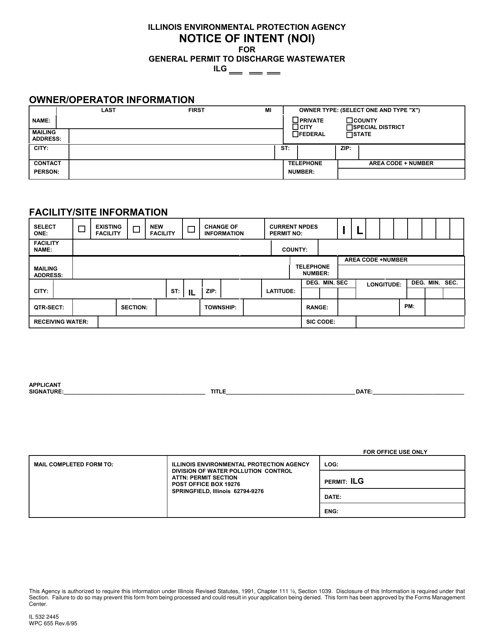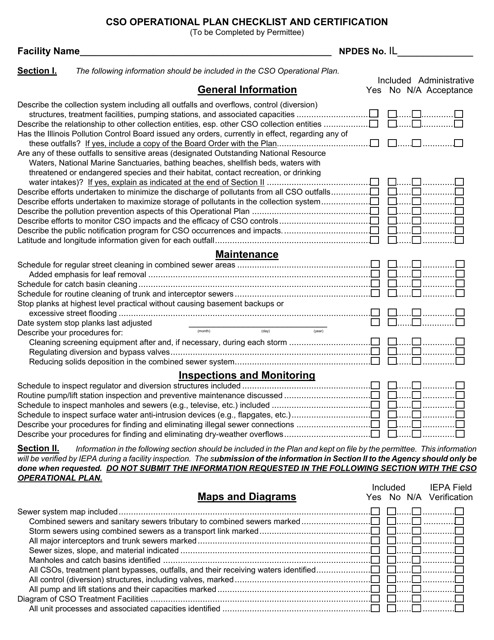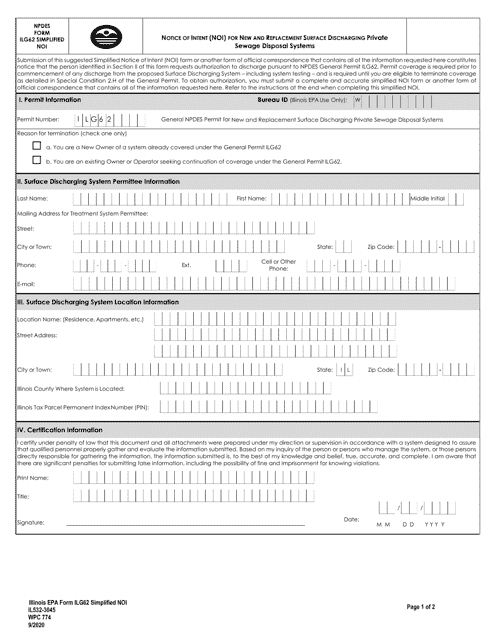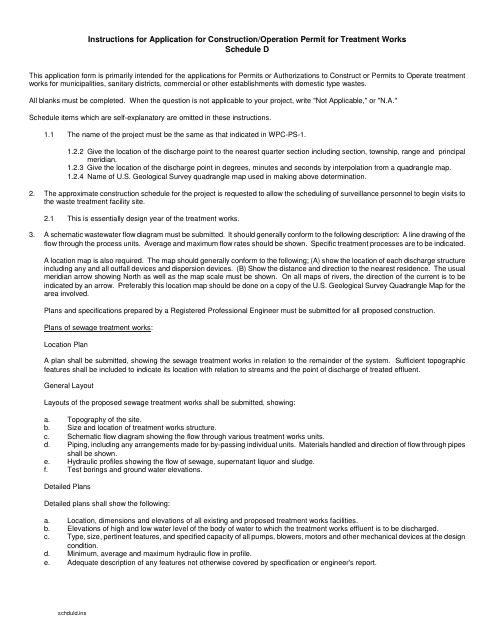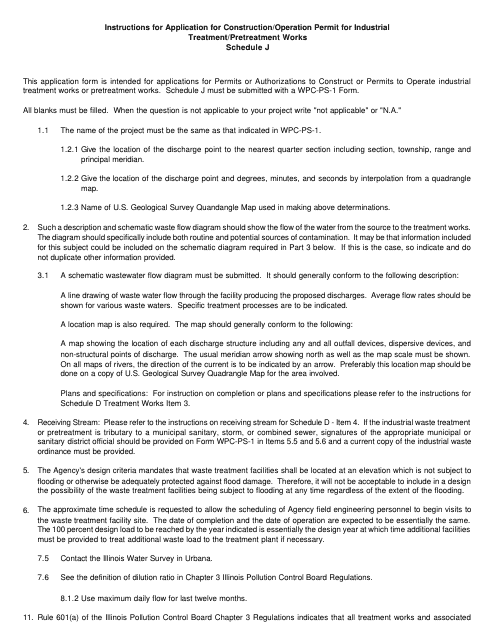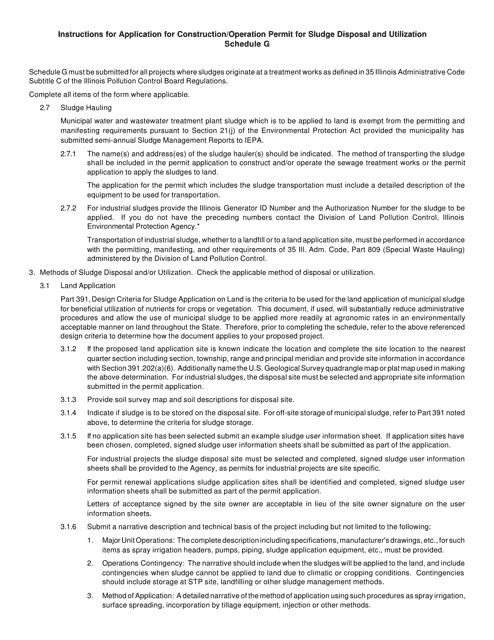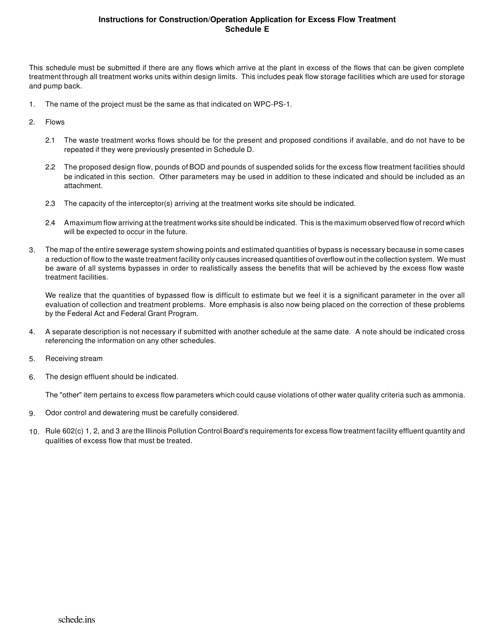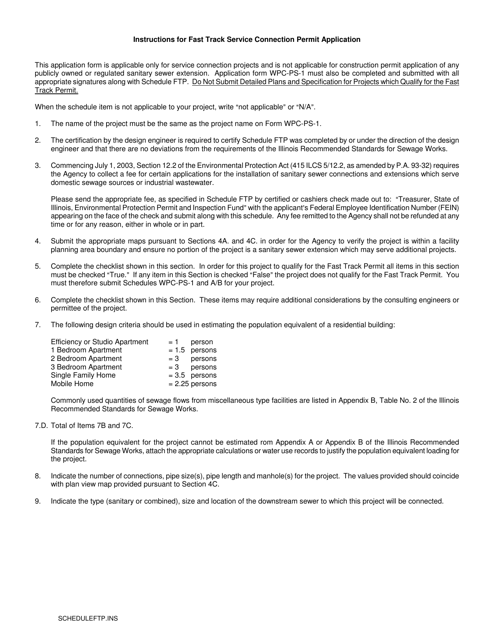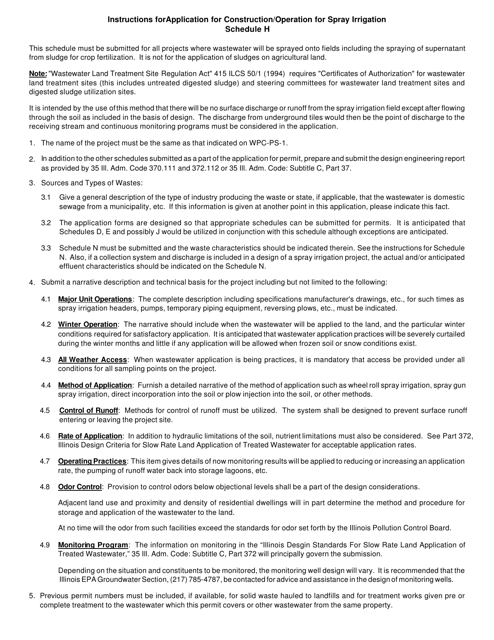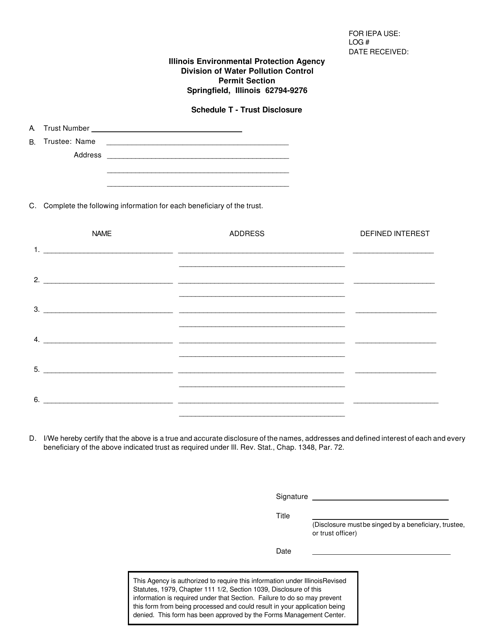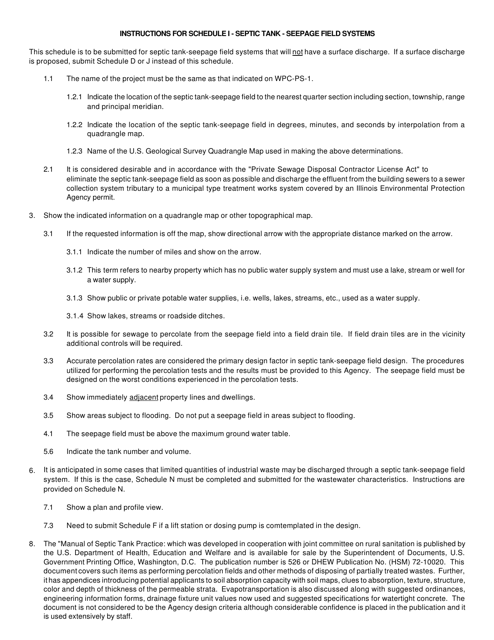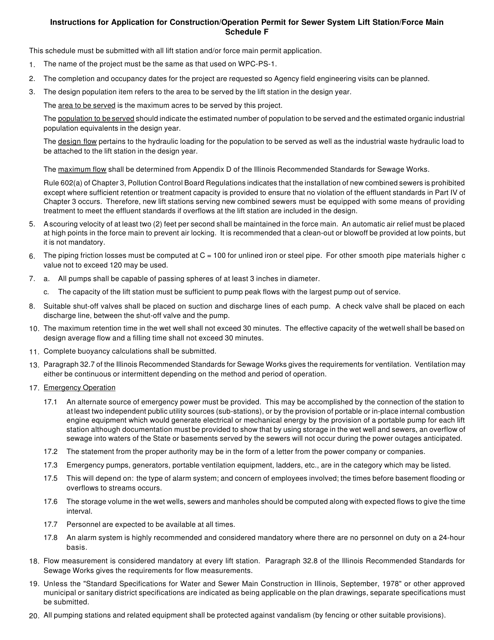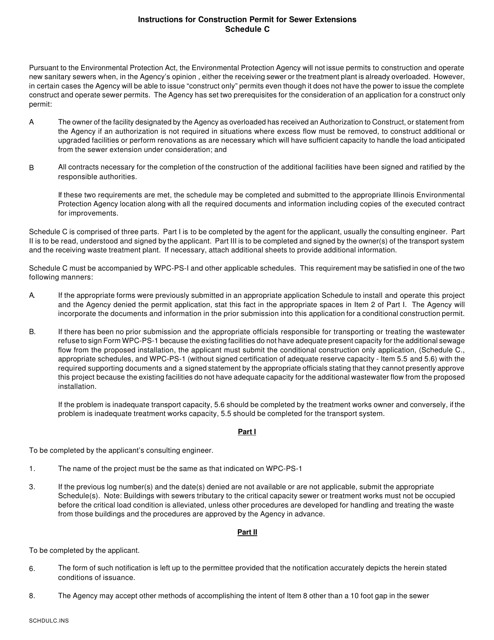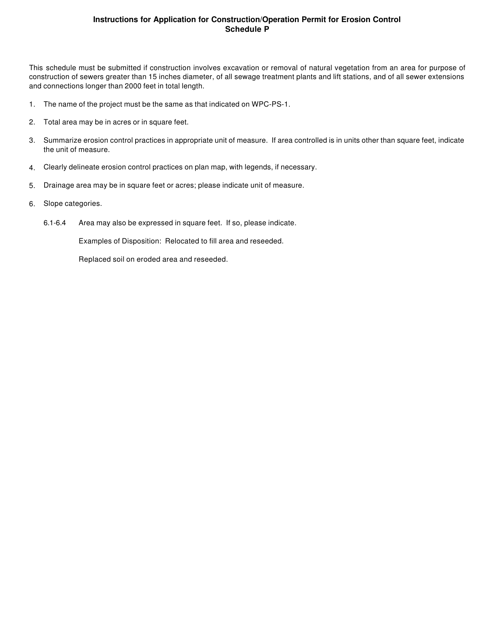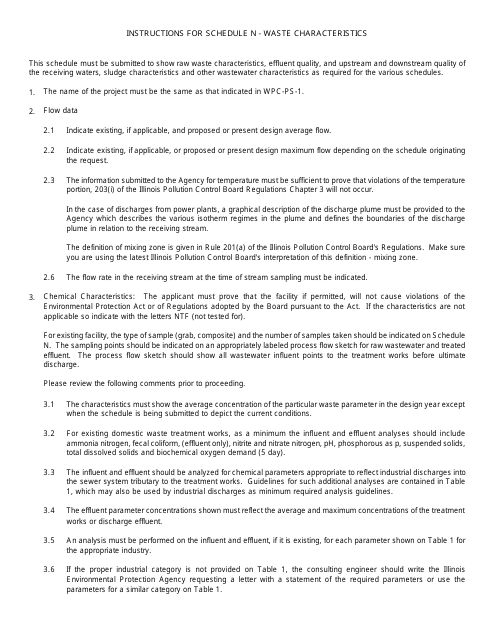Illinois Environmental Protection Agency Forms
Documents:
135
This form is used for notifying the regulatory agency in Illinois about the intent to obtain a general permit for discharging wastewater.
This form is used for completing a checklist and certification for the CSO Operational Plan in Illinois.
This form is used for filing a Notice of Intent (NOI) for new or replacement private sewage disposal systems in Illinois that discharge to the surface.
This form is used for reporting and documenting treatment works in the state of Illinois.
This form is used for scheduling the construction or pretreatment works at industrial treatment facilities in the state of Illinois.
This form is used for reporting sludge disposal and utilization in the state of Illinois. It is specifically for Schedule G of Form IL532-0016 (WPC156).
This document is for reporting the excess flow treatment on Schedule E for individuals or businesses located in Illinois. It is used to disclose any excess flows of certain substances that may require additional treatment.
This form is used for applying for a fast track service connection permit in Illinois for Schedule FTP.
This form is used for reporting spray irrigation activities in the state of Illinois.
This document provides disclosure requirements for trusts in the state of Illinois. It outlines the information that trustees must provide regarding the trust's assets, beneficiaries, and other relevant details.
This document is a form that is used in Illinois for scheduling the assessment and maintenance of a septic tank and seepage field system. It is specific to Illinois regulations and requirements.
This form is used for reporting information about sewer system lift stations and force mains in Illinois.
This form is used for applying for sewer extensions (construction only) in Illinois under Schedule C.
This form is used for reporting erosion control measures in the state of Illinois.
This form is used for assessing and documenting the waste characteristics in the state of Illinois. It helps individuals and businesses understand and manage the different types of waste they produce.

